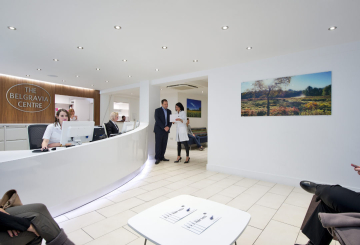Can Vitamin D Treat Alopecia?
A recent study in Dermatology Online Journal has looked at whether Vitamin D can be successfully used to treat the various types of alopecia. The report, titled: ‘Does D matter? The role of vitamin D in hair disorders and hair follicle cycling,’ appeared in the February 2010 edition, and set out to review the published evidence regarding the potential clinical use of vitamin D.
Vitamin D is a steroid hormone that is synthesised in the body under UV-B light, or acquired through the diet or supplements. Within the field of dermatology its effects have been well studied, and vitamin D analogues such as calcitriol are used clinically to treat psoriasis.
It has been proposed that normal function of the vitamin D receptor (VDR) is essential for initiation of the first hair cycle after birth, and for maintenance of the hair follicle. Studies in mice and rats have also suggested that vitamin D3 may play a protective role in radiation-induced alopecia, possibly by up regulating VDR, and that vitamin D3 analogues stimulate hair growth in mice born with congenital alopecia due to a genetic defect.
However, studies on humans have been very limited. Topical calcitriol has been shown to protect against chemotherapy-induced alopecia, but only when certain chemotherapy agents were used. Other studies into the use of vitamin D3 analogues to treat hair loss due to scalp psoriasis have proved inconclusive. It has also been difficult to demonstrate a relationship between VDR gene polymorphisms and alopecia areata.
Unless human studies are able to replicate the results shown in animal studies, the role of vitamin D and the VDR in the human hair cycle will remain unclear. Further study is needed to develop and evaluate treatments that up regulate the expression of the VDR, and to establish whether optimal levels of vitamin D supplementation may prove beneficial to alopecia sufferers.
Alopecia areata is a condition that manifests as sudden patchy hair loss, caused by hair follicles prematurely entering the resting phase of the hair cycle. Although it is generally regarded as an autoimmune disorder, it may be triggered by an external factor such as stress or injury. There may also be a genetic predisposition or hormonal element to the onset of hair loss due to this condition.
Treatment for alopecia areata can be very successful, depending on the severity of the condition and the stage it has reached, and the trichologists at the Belgravia Centre have a wealth of experience in addressing it. Patches of hair loss can be treated with Belgravia’s Minoxidil 12.5% Azelaic Acid formulation, which we have found to be the most safe and effective treatment. The earlier the condition is tackled, the more promising results are likely to be, so it is important to seek help as soon as the problem is recognised. You can see the kind of results we have achieved in treating alopecia areata here.
Although some alopecia sufferers can experience spontaneous or seasonal hair regrowth, hair loss or scalp problems may not go away by themselves and may worsen if left untreated. Our advisors will be happy to discuss an individual hair loss treatment programme with you, based around primary medications that are clinically proven to stabilise hair loss and promote regrowth, along with various hair growth boosters. Call 020 7730 6666 to book a free consultation with one of our specialists, or send us a message with any enquiry you may have. Alternatively, if you can’t get to the London centre, complete the online diagnostic form for advice on a home-use treatment course that fits your needs, available worldwide.

The Belgravia Centre
The Belgravia Centre is a world-renowned group of a hair loss clinic in Central London, UK. If you are worried about hair loss you can arrange a free consultation with a hair loss expert or complete our Online Consultation from anywhere in the world for home-use treatment.
View our Hair Loss Success Stories, which includes the world's largest gallery of hair growth photos and demonstrates the level of success that so many of Belgravia's patients achieve.
